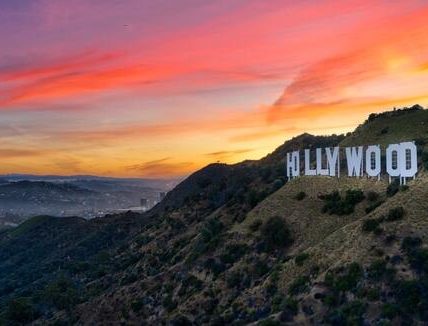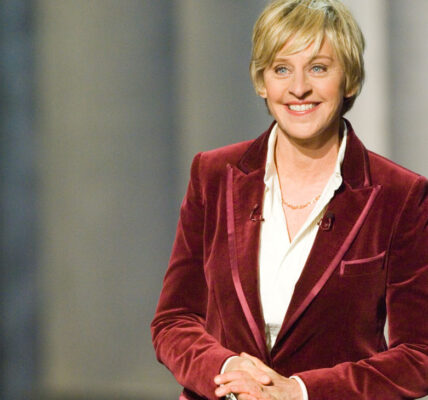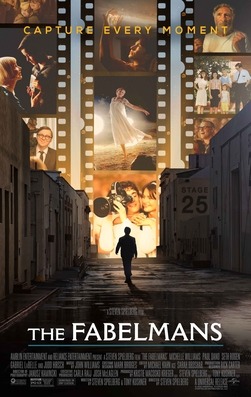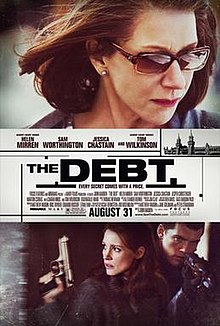Page Contents
ACTING FOR THE CAMERA
Stephen Rea: The Acting Game
Since the early eighties, Belfast-born actor Stephen Rea has rarely been off the big screen, with an endless array of pitch perfect performances such as the cuckolded civil servant Henry Miles in THE END OF THE AFFAIR (1999), the vengeful vampire Santiago in INTERVIEW WITH THE VAMPIRE: THE VAMPIRE CHRONICLES (1994), and, of course, his Oscar®-nominated portrayal of disaffected IRA foot soldier Fergus in THE CRYING GAME (1992).
And those are just three of the ten films he’s made with director Neil Jordan! He’s also worked with plenty of other great directors from Mike Leigh to Robert Altman, and, since his early days with the Abbey Theatre Company in Dublin, is no stranger to the stage as well. Indeed, in 1980, along with playwright Brian Friel, he founded the famous Field Day Theatre Company in Ireland.
This year, among other things, he’ll be seen back on stage at the Abbey Theatre in Sam Shepard’s play Ages of the Moon. He’s also teamed up with director Stuart Gordon (famous for 1985’s schlock horror RE-ANIMATOR) and co-star Mena Suvari for STUCK, in which he plays a down-on-his-luck character that has a particularly gruesome encounter with a car windshield…
I’ve just been checking out your filmography on IMDb.com and you’re always really busy!
Well I like to get out of the house, you know. [Laughs] I don’t know, maybe I shouldn’t do so much!
What attracted you to the STUCK project? Was it working with Stuart Gordon?
Yeah, initially. And then he sent me the script and I thought it was great. John Strysik is a fantastic writer—he wrote it with Stuart. And it was just one of those projects where it feels right, you know. I’ve seen it in the cinema a couple of times and audiences go wild for it because it’s very visceral.
It’s certainly visceral. It must have been quite a physical shoot for you and pretty awkward being stuck in the car windshield for most of the time.
It wasn’t easy, but I knew that when I read it. People are very kind and decent and bring you drinks with a straw and ask you if you’re warm enough and everything… So it’s okay, but you do spend a lot of time lying on the hood of a car, you know!
“It can get to you but acting is a conscious art too. I don’t think you should be at the mercy of it.”
Covered in blood!
Yeah, I thought it was worth doing even though it was uncomfortable. But then you know all filming is slightly uncomfortable. Especially in November!
It reminded me of Rob Reiner’s MISERY.
People do mention that. Except they’re both trapped. And I think the audience ends up identifying with both people; they want her to get away with it and yet they want him to escape. They’re both victims in a way.
Gordon brings that slightly over the top, comedic, 1980s horror feeling to it.
[Laughs] I know! But the thing is it’s great, that heightened way of doing it is great because the audience just screams, you know. They say, “GET HER, GET HER, KILL HER!” Well, they do in America anyway. Of course they scream all the time there! But it’s a lot of fun to watch it with an audience.
At the recent British Independent Film Awards David Thewlis told us that he enjoyed a relative anonymity that comes from being a character actor. Does that chime with you?
Well I think I get the right amount of attention, which is that nobody bothers me and sometimes people speak to me. Quite a lot of people sometimes, but it’s usually nice, you know. I don’t feel that I’m the property of someone else. The other day this woman came up to me and said you were in a movie called THE COMPANY OF WOLVES (1984) and that was like the second movie that I did, and I didn’t know that anybody was watching that anymore.
It’s a bit of a cult classic.
Yeah I know, but somebody comes up to me in the street and she says, “I love the fantastical element in that movie,” and it’s just very gratifying when people talk to you like that.
“I always say to actors that you better be interested in acting because if you’re going to be an actor, you may not get fame and you may not get money, so you have to be interested in acting.”
The first thing I saw you in was ANGEL but often people associate an actor with “that” movie and with you I suppose it’s THE CRYING GAME. Do you enjoy that association?
It was a great movie for me and it was a great movie full stop. It was also a cult classic. People, particularly in America, completely loved it; it opened up something that hadn’t been opened up before and that’s what you’re in it for really… And there was kind of a lot of adulation and people screaming at you, but that settles down.
What do you look for when choosing a film to do?
The only thing I look for is a good script. And sometimes you work when the script isn’t that good but you live in hope because you think the director is going to do something interesting.
There must be a special bond between you and Neil Jordan.
Well there is, I mean we don’t talk much about anything, you know; it all seems to work. We just did an extra day’s shooting on a movie I’ve done with him and I just love watching him work. He’s a wonderful writer and a wonderful visual filmmaker; really nobody’s better than him that I’ve worked with.
What do you like about your theatre acting?
The process is completely different. Theatre acting is very tiring because you’re maybe doing it eight times a week and you don’t get a weekend and all that. Working in film, the days are very different: every day you get a different scene, whereas in theatre you’re preparing for this nightly ritual and it can be tough. But what I like with it is the contact with the audience and how you can time things and how you control totally what you do. In film you have no control over anything. You have control over the moment of performance but in the end what the audience sees has got nothing to do with you.
So what attracts you to the camera?
Well, the most rewarding thing in film is that you’re so close to the moment that’s being created. Sometimes you’re even closer than the director, who might be sitting round the corner looking through a monitor. I always rely tremendously on the operator. For me the operator is the guy with whom the actor has the most immediate contact; he actually sees in the lens what is happening. The monitor only recreates that moment. Directors have stopped watching with the naked eye. When we did THE END OF THE AFFAIR, Roger Pratt, who’s an absolutely brilliant cinematographer, used to sit under the camera and watch it live and there was this fantastic contribution of concentration and energy. And at the end he would nod approvingly or… but he would see things from that position that nobody else could see in terms of light and everything. There’s that sphere of concentration that occurs with the camera crew. I depend on it totally in fact. I used to work with Mike Roberts and Mike was an incredible camera operator and he used to just peak around the camera and whisper “Slower, slower” and these were negotiations that were occurring without the director, not that I wanted to exclude the director. Acting can be a very technical business and it’s really good to be with the guys who understand the technique.
“In film you have no control over anything. You have control over the moment of performance but in the end what the audience sees has got nothing to do with you.”
I recently saw HUNGER, which was interesting from both an acting and technical point of view with some very long scenes without cuts.
That’s wonderful and they tend not to want to do that any more. You know in the old days, if you watch TO HAVE AND HAVE NOT with Humphrey Bogart, there’s a point at which the camera’s on a mid-shot of him and he talks and they just leave it on him, they don’t even creep in to a tighter position, they don’t do anything to assert the directorial role. They just say let’s watch this guy. And because Bogart was truly great, that’s really all you need and it makes it a very interesting shot.
What attracted you to acting in the first place?
Movies. Everybody went to the pictures on a Saturday and you just watched whatever was going. But then acting is a kind of deeper instinct than the medium you’re watching. It’s just an urge to perform, you know. And I had that. I got kind of caught up in the theatre, very much so, and then I miraculously did one film with Neil Jordan, ANGEL. Then I did his second one, and then a bit of a hiatus for a while, and I was doing a lot of theatre and then I decided I want to do film now otherwise I’m not going to get to do it, so I just stopped work for a while and within three weeks Neil asked me about THE CRYING GAME; and then that did change everything.
How do you prepare for a role?
It’s a mixture; it depends on what the demands for the role are. Obviously there are some parts where you just simply have to research stuff. But other parts, you hear a voice and you start to go with it. Acting to me is all about thinking. It’s thinking in front of the camera; that’s what the camera likes. It likes Bogart, it likes Robert Mitchum, because they’re thinking. You’ve got to use your brain, it seems to me.
Do you take your roles home with you?
I can be myself but I am myself totally involved in the role. But I don’t go home and become like a kind of monster. I did this thing for HBO years ago called Crime of the Century, about the Lindberg kidnapping, and I played this guy who was falsely accused of killing a child and I got terribly oppressed by being that character because of the injustice of it. And that can happen. We did this scene and I walked to the electric chair and I found it monstrously upsetting. I don’t know whether it was because I was so much in the role or was overwhelmed by sympathy for the guy… It can get to you but acting is a conscious art too. I don’t think you should be at the mercy of it.
“The best advice that I ever had was when Mike Roberts put his head round the camera and said, “SLOWER!”
One of my pet interests is how Hollywood perceives France and Frenchness. Have you come across a sense of Hollywood Irishness over the years?
Of course there has been for a long time. Going way back to Barry Fitzgerald, a very important Irish actor, and he was brilliant in the movies with Bing Crosby, John Wayne, Cary Grant, this character man; effortlessly charming, but only a fraction of what his real talent was—he was a major theatre actor but he was never the major lead in a film and they encouraged him to be a cute little Irish guy and there’s always been that. It also reflects how they perceive Ireland and how they want them to be a particular kind of ‘entertaining guys’. But that’s changed a bit. I do think it’s very interesting that Steve McQueen does HUNGER because I think we wouldn’t have got the money to do it in Ireland, but because he’s from South London and so clearly not Irish, and apparently would have more pure motives, then he gets allowed to do it.
I thought GARAGE was a good film that came out of Ireland last year.
Yeah, it’s a very good film. It’s very difficult to get things done here; there just isn’t the money. But there are really interesting people around. You were talking about France; I think we should be making Irish movies the way the French people make French movies: with no concession to the outside world whatever.
What advice do you give to struggling actors?
I always say to actors that you better be interested in acting because if you’re going to be an actor, you may not get fame and you may not get money, so you have to be interested in acting. And I know that kind of sounds simplistic but a lot of people go into it for the wrong reasons: because they see all the glamour that is apparently attached to it, but if you’re generally interested in acting and what it can do for you and how it can affect your life, then you’ll be alright because you’ll be actually doing what you’re supposed to do.
And what’s the best advice you’ve ever received?
The best advice that I ever had was when Mike Roberts put his head round the camera and said, “SLOWER!” ■












